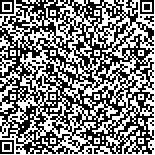| 引用本文: | 温丽联,宋金明,李学刚,马骏,戴佳佳,袁华茂,段丽琴,王启栋.海洋环境中氟喹诺酮类抗生素(FQs)分析的样品前处理与检测技术[J].海洋科学,2023,47(9):103-118. |
| |
|
| |
|
|
| 本文已被:浏览 210次 下载 441次 |

码上扫一扫! |
|
|
| 海洋环境中氟喹诺酮类抗生素(FQs)分析的样品前处理与检测技术 |
|
温丽联1,2, 宋金明1,3,2,4, 李学刚1,3,2,4, 马骏1,4, 戴佳佳1,4, 袁华茂1,3,2,4, 段丽琴1,3,2,4, 王启栋1,4
|
|
1.中国科学院海洋研究所 中国科学院海洋生态与环境科学重点实验室, 山东 青岛 266071;2.中国科学院大学, 北京 100049;3.青岛海洋科学与技术试点国家实验室 海洋生态与环境科学功能实验室, 山东 青岛 266237;4.中国科学院海洋大科学研究中心, 山东 青岛 266071
|
|
| 摘要: |
| 氟喹诺酮类(FQs)药物是一种广泛使用的人工合成类抗生素, 存在于水体、沉积物等各种环境介质中, 并在水生生物体内得到富集, 对人类健康和全球生态系统的可持续发展有重要的影响。环境中FQs残留的分析检测是了解其环境生物地球化学行为和潜在生态环境风险的基础, 本文系统总结了近几年海洋水体、沉积物和生物体样品中FQs的残留特征、样品前处理与检测技术, 在此基础上, 前瞻分析了海洋环境中FQs残留分析检测技术的发展趋势。分析表明, FQs的分离富集和测定必须充分考虑FQs的物理化学性质和样品成分的复杂性。海水样品准备应注意过滤膜的选择和pH的调节; 沉积物和生物体的样品准备应考虑水分、萃取溶剂、基质效应和pH的影响, 并使用超声萃取。固相萃取、QuEChERS萃取、磁性固相萃取是分离富集FQs较常用的方法, 吸附剂、淋洗溶液和洗脱溶液的选择和优化是提高样品回收率的关键。FQs的检测大多通过液质联用或液相色谱结合荧光检测器进行, 其中色谱柱的选择、离子对试剂的添加和进样pH值的调整都是优化的关键因素。研究指出海洋领域FQs在线自动SPE技术的开发以及新型萃取吸附剂的研制应在未来研究中被重点关注。 |
| 关键词: 氟喹诺酮类抗生素(FQs) 样品前处理 分离富集 海洋环境 |
| DOI:10.11759/hykx20230208001 |
| 分类号:X502 |
| 基金项目:中国科学院A类先导专项项目(XDA23050501); 中国科学院特别研究助理支持项目 |
|
| Sample pretreatment and determination of fluoroquinolone antibiotics in marine environments |
|
WEN Li-lian1,2, SONG Jin-ming1,3,2,4, LI Xue-gang1,3,2,4, MA Jun1,4, DAI Jia-jia1,4, YUAN Hua-mao1,3,2,4, DUAN Li-qin1,3,2,4, WANG Qi-dong1,4
|
|
1.CAS Key Laboratory of Marine Ecology and Environmental Sciences, Institute of Oceanology, Chinese Academy of Sciences, Qingdao 266071, China;2.University of Chinese Academy of Sciences, Beijing 100049, China;3.Laboratory for Marine Ecology and Environmental Science, Pilot National Laboratory for Marine Science and Technology (Qingdao), Qingdao 266237, China;4.Center for Ocean Mega-Science, Chinese Academy of Sciences, Qingdao 266071, China
|
| Abstract: |
| Fluoroquinolones (FQs) from a class of widely used synthetic antibiotics and exist in various environmental media, such as water and sediments. FQs are gradually enriched in aquatic organisms, posing a negative effect on human health and the sustainable development of the global ecosystem. Determining the FQ residues in the environment is the foundation for understanding their environmental biogeochemical behavior and potential ecological risks. This article systematically summarizes the results related to the features, as well as the sample pretreatment and determination of the FQ residues in seawater, sediments, and biological samples obtained in recent years. Accordingly, the development trend of sample pretreatment and determination methods for FQ analysis in marine environments is discussed. The physical and chemical properties, along with the complexity of sample compositions, must be considered during the sample pretreatment and determination of FQs. Sediment and biological samples should be prepared to remove more water, select the appropriate extraction solvent, and employ ultrasonic-assisted extraction, considering the matrix effect and pH. Solid-phase extraction (SPE), QuEChERS extraction, and magnetic solid-phase extraction are common methods for the separation and enrichment of FQs. The selection and optimization of the eluting solution are key factors for improving sample recovery. The determination of FQs is mostly carried out through liquid chromatography-tandem mass spectrometry or liquid chromatography combined with a fluorescence detector, wherein selecting the chromatographic column, adding an ion-pairing agent, and adjusting pH are the key factors. In future research, more attention should be paid to the development of online automatic SPE technology and new extraction adsorbents. |
| Key words: Fluoroquinolones antibiotics (FQs) sample preparation separation and enrichment marine environment |
|
|
|
|
|
|
